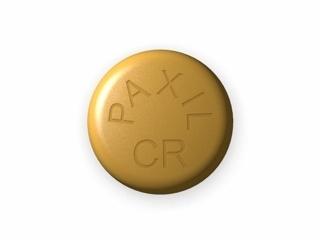Depsonil 25mg (Imipramine)
Depsonil – Tofranil, Imipramine
Nervous system » Psychoanaleptics » Antidepressants » Imipramine hydrochloride
Indications:
Tricyclic antidepressants are known to lower the seizure threshold. For this reason, Tofranil is not recommended in patients with epilepsy or a predisposition to seizures. Patients should have a cardiac function and ECG monitored. Due to its anticholinergic properties, Tofranil has been used in the past to lower intraocular pressure. At the beginning of tricyclic antidepressant therapy, many patients with panic disorder experience more pronounced anxiety.
Activation of psychosis in some patients with schizophrenia taking tricyclic antidepressants.Manic episodes have also been reported – in such cases, a dose reduction or withdrawal of Depsonil is necessary. After the subsidence of such attacks, if necessary, you can start treatment with Depsonil in low doses.
Patients with hyperthyroidism should be careful when using drugs.In patients with liver disease, liver enzyme levels should be monitored regularly.Blood tests should be done at regular intervals.
Suicidal risk is an integral feature of depression, after taking Imipramine, a significant remission is achieved.
How to take the medicine: dosage
Take it by mouth, during, or immediately after a meal (to reduce irritation of the gastric mucosa). Individual dose selection is required, for adults, the initial dose – is 25-50 mg 3-4 times a day, then the dose is increased daily by 25 mg and adjusted to 200-250 mg/day; the duration of treatment for mild forms of depression is 4-6 weeks. After that, the dose is gradually reduced (by 25 mg every 2-3 days) and switched to maintenance therapy at a dose of 25 mg 1-4 times a day for another 4-6 weeks. In the elderly, the initial dose is 10 mg/day with a gradual increase to 30-50 mg or more until the optimal effect is obtained.
To reduce the irritating effect on the gastric mucosa, it is recommended to take it after meals. For maintenance therapy, a single dose at night is often used, a fractional dose is left in the elderly, adolescents, and in patients with cardiovascular diseases.
In severe forms of depression in a hospital, combination therapy can be used – intramuscularly and orally. As an antidepressant – up to 100 mg/day in divided doses. Higher doses for adults: single – 50 mg, daily – 300 mg. Children under 12 are not recommended.
Stopping treatment too early can lead to a relapse of depression. Imipramine should be discontinued gradually.
It has a pronounced peripheral and central anticholinergic effect; strong sedative effect and alpha-adrenergic blocking action.
The mechanism of antidepressant action is associated with an increase in the concentration of norepinephrine in the synapses and/or serotonin in the central nervous system (a decrease in their reabsorption). The accumulation of these neurotransmitters occurs as a result of inhibition of their reuptake by the membranes of presynaptic neurons. With prolonged use, it reduces the functional activity of beta-adrenergic receptors and serotonin receptors in the brain, normalizes adrenergic and serotonergic transmission, and restores the balance of these systems, disturbed in depressive states. In anxiety-depressive conditions, it reduces anxiety, agitation, and depressive manifestations.
It has a central analgesic effect, which is believed to be associated with a change in the concentration of monoamines in the central nervous system, especially serotonin, and an effect on endogenous opioid systems.
The mechanism of action in bulimia nervosa is unclear (may be similar to that in depression). A clear effect of the drug on bulimia in patients both without and with depression has been shown, and a decrease in bulimia can be observed without a concomitant weakening of the depression itself.
Panic Disorders
Since this group of patients has an increased incidence of side effects of the drug, treatment should be started with the lowest possible dose. A transient increase in anxiety at the start of antidepressant treatment can be prevented or treated with benzodiazepines, the dose of which is gradually reduced as anxiety symptoms decrease. The minimum duration of treatment is 6 months. Upon completion of treatment, it is recommended to cancel the drug Imipramine gradually.
Suicidal thoughts
Depression is associated with an increased risk of suicidal thoughts of self-harm and suicide. This risk persists until a marked remission occurs. Since improvement may not occur during the first few weeks of treatment or longer, careful monitoring of the patient is required until such improvement is achieved. According to general clinical experience, the risk of suicide may increase in the early stages of recovery. The frequency of suicides increases in children and persons under 24 years of age.
Other psychiatric conditions for which imipramine is prescribed may also be associated with an increased risk of suicidal events. In addition, these conditions may accompany the major depressive disorder. Therefore, when treating patients with other psychiatric disorders, the same precautions should be followed as when treating patients with major depressive disorder.
Patients with a history of suicidal events or patients with significant suicidal thoughts prior to initiation of therapy are at increased risk of suicidal thoughts or suicide attempts and therefore require careful monitoring during therapy.
Drug therapy should be accompanied by careful monitoring of patients, in particular patients at high risk, especially in the early stages of treatment and after dose changes.
Patients (and their caregivers) should be warned to watch for any clinical worsening of suicidal behavior or thoughts and unusual changes in behavior and seek immediate medical attention if these symptoms are present.
The therapeutic effect can be expected no earlier than after 2-4 weeks of treatment. As with other antidepressants, the late onset of therapeutic effect means that the patient’s suicidal tendencies will not be eliminated immediately, so the patient needs close medical supervision until significant improvements are achieved.
Therapy with a maintenance dose of the drug should last at least 6 months and be discontinued gradually, since abrupt discontinuation of the drug may cause symptoms of a “withdrawal syndrome” (nausea, headache, fatigue, anxiety, sleep disturbances, arrhythmia, extrapyramidal symptoms, especially in children). Behavioral disturbances may occur in children receiving imipramine for the treatment of nocturnal enuresis.
Like other tricyclic antidepressants, imipramine lowers the seizure threshold; therefore, patients with epilepsy and a history of spasmophilia or epilepsy require careful medical supervision and adequate anticonvulsant therapy.
With long-term therapy with antidepressants, there is an increase in the incidence of dental caries; therefore, regular dental check-ups are necessary.
Side effects may be more severe in older patients, therefore, especially at the beginning of treatment, lower doses are required.
During therapy with imipramine, the use of alcoholic beverages is prohibited.
The use of the drug Imipramine leads to an increased risk of accidents, so driving should be prohibited at the beginning of therapy. In the future, the degree and duration of these restrictions are determined by the doctor individually.
















